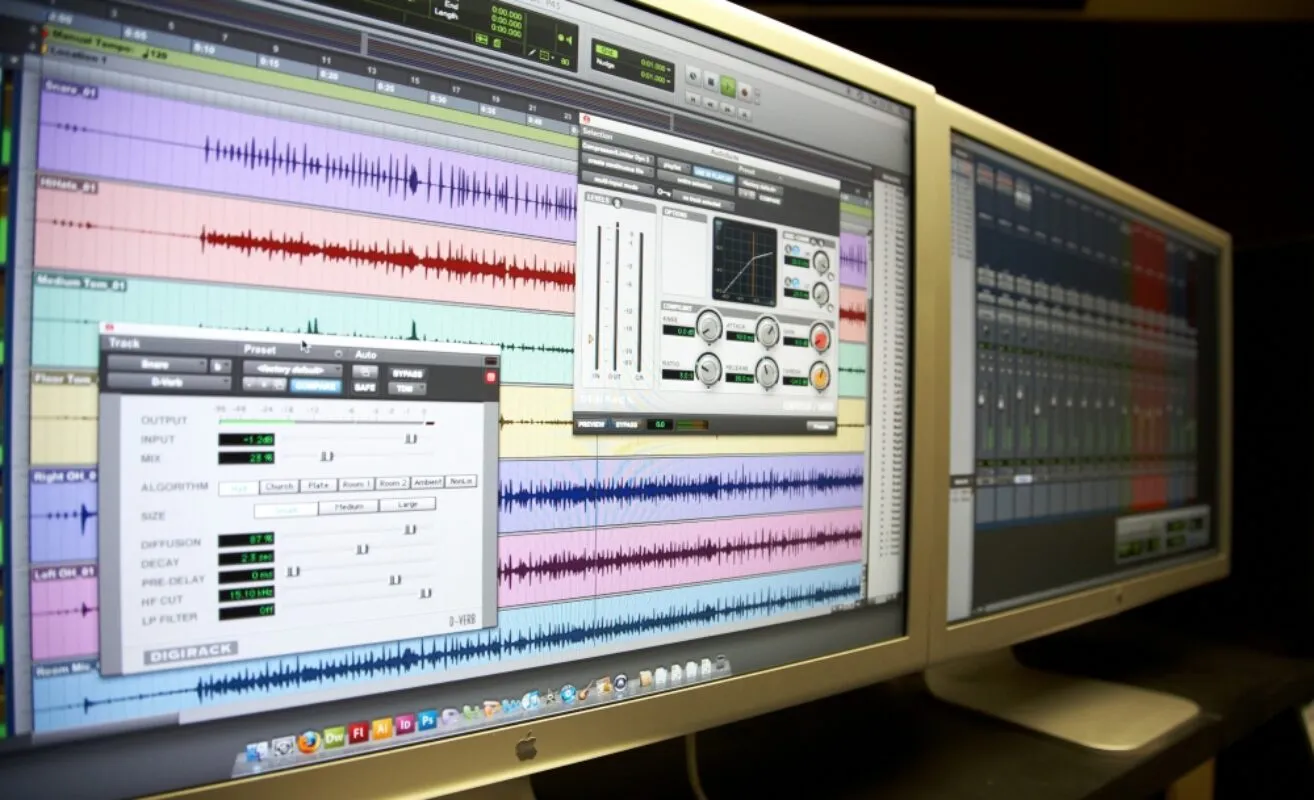Courses
Admissions & Support
Course Search
Courses
Admissions & Support
Course Search
Our Services
Our Community
Course Search
Professional Services
Campus: Athlone
years: 2

Work with industry standard software, computing, and studio and live audio equipment in a variety of dynamic, practical assignments at our state-of-the-art facilities. Gain vital creative industry exposure through work experience. Manufacture a mandolin, and an acoustic guitar from raw materials at the wood workshop, as well as building and customising an electric guitar. Study the core professional development concepts required to work in the creative industry including marketing and visual creation. The Music and Instrument Technology course has been developed by TUS lecturing staff along with Creative Industry professionals to be the quintessential ‘Swiss army knife’ in this field of study. As a Music and Instrument Technology student, you will be involved in a wide range of industry-specific practical work in aspects of Sound Engineering, Acoustic Technology, and other Professional Development studies that are necessities for working in the professional Creative Industry. This diversity gives graduates a range of real skills and the flexibility required to work in the Creative Industry, and on completion of the course, you will have assembled an impressive portfolio of industry-related work. There are both Level 7 and Level 8 add-ons available that Music and Instrument Technology students can apply for at the TUS, Athlone Campus. Music and Instrument Technology students have unrivalled access to industry standard equipment and software in state of-the-art facilities based in one of Ireland’s most prestigious Technological Universities, right in the heart of Ireland. Being a musician is not a pre-requisite for entry to the course.
Shane Byrne
Email: Shane.Byrne@tus.ie
Grade 06 at ordinary level in five subjects in the Leaving Certificate examination. Two of these subjects must be Mathematics and a language (English or Irish).
Any QQI level 5 qualification is acceptable. Applicants to this programme are required, however, to have one specified mathematics module included in their award either module mathematics (5N1833) or Maths for IT (5N18396) or Maths for STEM (5N0556) or alternatively have Leaving Certificate mathematics.
Applicants are considered ‘mature’ once they are 23 years or over on 1 January in the year they wish to begin studying. In the event that the number of applicants exceeds the number of available places you may be contacted for further information or interview.
International applicants should apply directly to the International Office at TUS, allowing plenty of time for completing the visa process. Applications for September start should be made by 1st June at the latest to ensure visas are processed in time. You should familiarise yourself with visa processing times for your country of origin to ensure you make a timely application. Find out more here.
Year 1 will introduce you to the core concepts around working with computer based sound engineering, live sound engineering, wood working & instrument manufacture and to the importance of business in a creative industry.
Sound Engineering 1
Instrument Technology 1
Music & Production
Music Marketing
Social Media & Digital Applications
Learning & Development for Higher Education
Computer Applications
Work Experience
Year 2 builds on the core concepts from Year 1. As a Year 2 M.A.I.T student, you will be able to hone your studio sound engineering skills with open access to the TUS Midland’s recording studio to complete project work, you will continue making instruments from their raw materials and you will be introduced to more business concepts – particularly Entrepreneurship, which is a critical skill to work in an industry as competitive as Music.
Sound Engineering 2
Instrument Technology 2
Digital Audio
Entrepreneurship for M.A.I.T
Accounting for M.A.I.T
Economics and the Entertainment Industry
E-Business
With the Higher Certificate you will be qualified to assume a junior position in the sound engineering or instrument technology or business sectors of the music and related industries. The following positions should be typical: Recording Studio Sound Engineer, Live Sound Engineer, Broadcast Sound Engineer for Radio & TV, Foley Artist, Audio Visual Technician for TV & Film, Video Game Audio Technician, Multi-Media Sound Designer, Event Organiser, Instrument Building & Maintenance Technician, Business Entrepreneur, Music Producer.
Successful graduates of this programme are eligible for Level 7 Degree in Music and Sound Engineering within TUS.